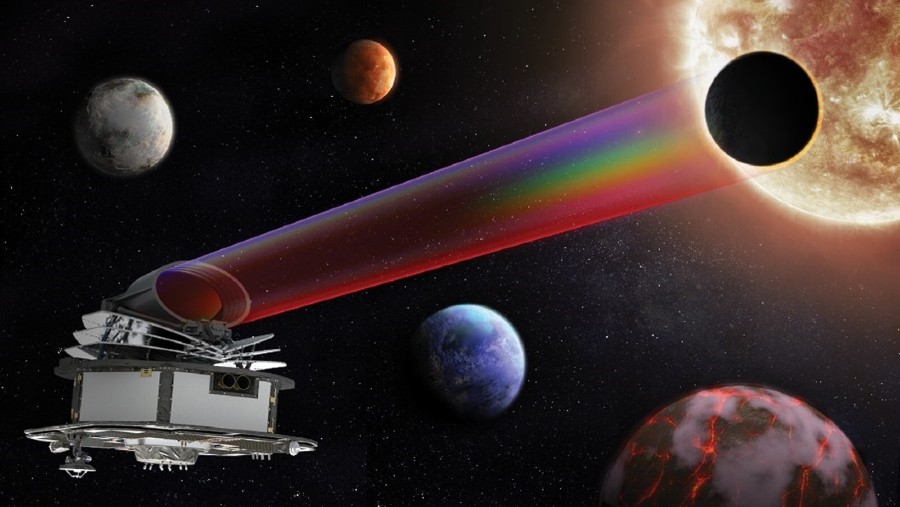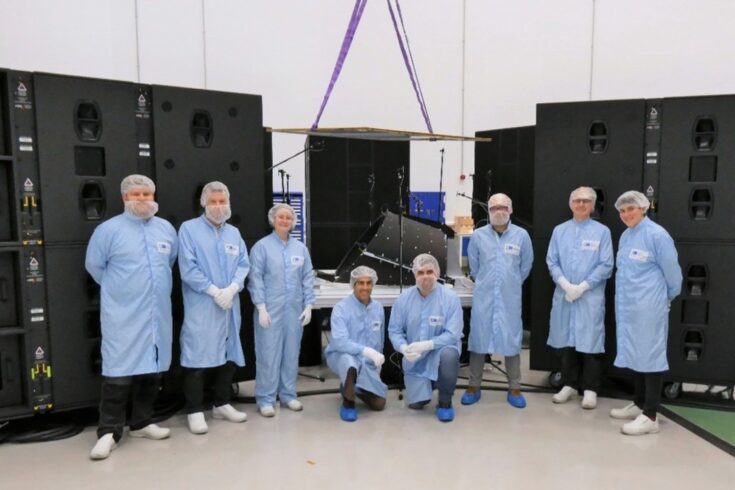A team at the National Satellite Test Facility (NSTF) has completed its first direct field acoustic noise (DFAN) tests on components for the Ariel space telescope, a European Space Agency-led project. Ariel will study the chemistry of around 1,000 planets outside our solar system.
The component tested was the telescope baffle’s engineering qualification model (EQM), built by Active Space Technologies.
RAL Space, operated by the Science and Technology Facilities Council (STFC), led the mission’s international payload consortium, with University College London leading the mission’s science.

Artist’s impression of the Ariel telescope in space, with the baffle visible on top of the spacecraft. Credit: European Space Agency
National Satellite Test Facility
Operated by STFC RAL Space, the NSTF ensures spacecraft up to seven tonnes can withstand harsh launch and space conditions. Officially opened in May 2024, the facility offers state-of-the-art testing for large spacecraft.
This includes areas where mini-bus sized satellites are shaken to simulate launch conditions and baked in the UK’s largest space test chamber to assess resilience to extreme temperatures.
New frontier for UK
While many NSTF capabilities build on RAL Space’s existing expertise, acoustic tests are a new frontier for the UK. The Dynamics Suite houses 48 large speakers and amplifiers to simulate the loud acoustic environment of a rocket launch.
This DFAN testing is vital for ensuring the structural integrity of space components, especially large, lightweight ones.
Further testing
This EQM model validates the design before the final flight model is assembled. After acoustic tests, the baffle EQM will undergo further testing in RAL Space’s thermal vacuum facilities.
Dr Rachel Drummond, Ariel UK National Project Manager at RAL Space said:
The Ariel Payload Team at RAL Space were very excited to participate and observe this test. Not only does it offer valuable lessons for testing the full Ariel payload’s structural model later in the year, but it’s fantastic to see the various components coming together from our partners across Europe.
A crucial milestone
Dr Ian Horsfall, Dynamics Group Leader at RAL Space, said:
The successful completion of these DFAN tests is a crucial milestone, not just for RAL Space but for the wider UK sector. Our team has done outstanding work extending our capability to test spacecraft components under these conditions that are as close to reality as possible. This achievement is a significant step forward for the NSTF and will benefit many future missions.

